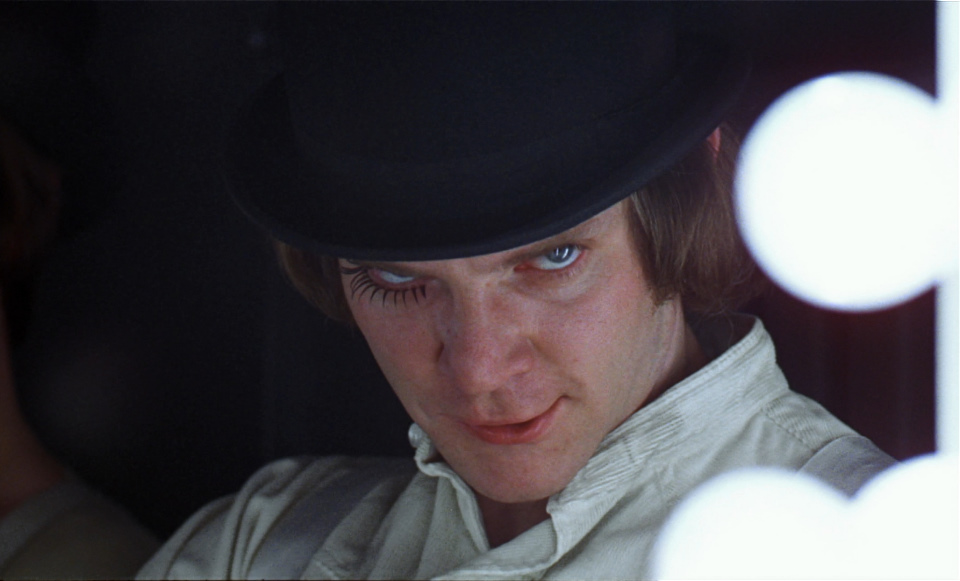 |
| The molodoy nadsat that dratses old lewdies. |
This movie is not for the faint-hearted eunuch jelly, and I know this because I am a pretty squeamish guy, and it was near traumatizing. But if you have the guttiwuts to sit through it, it's a very interessovating psychological thriller with terrifying implications.
But anywho, about that Nadsat. Anthony Burgess decided to narrate his book from the first person view of Alex, and as with any time period, his language is laced with slang. But in order to draw the illusion of the strangeness but vague similarity of the future, he made up words and used them as if they were actual words. Throughout the novel, and movie, certain words would be seamlessly replaced by their Nadsat translations, and consistently, too. Burgess took Russian translations for most of the words, and altered much of them to make them slightly more strange. And for others, he abbreviated synonyms, for example, "money" is called cutter, which is reminiscent of "bread and butter". And for the rest, he just made stuff up. But exactly why did he do this?
Being a book published in 1962, some notoriously odd slang was beginning to form. Predicting that this phenomenon of people making up words would continue for the rest of the existence of humanity, as always has been done, he decided to use dialect as a way of adding to the illusion of time travel. Futuristic scenery is always a fascinating subject. Because of elements like clothing, music, architecture and dialect, when we go in to watch a movie, we can sense that the setting is either in the past because things looks familiar, or in the present because things looks familiar. But oddly enough, we can also tell when something is futuristic, even though we have no idea what the future will look like.
Dialect is often recycled, when words become twisted to mean something else and sound slightly different over a period of time. So by displaying a highly distorted, amusingly silly form of language, we automatically infer that this alien slang is the process of many, many "recyclings" of language. The elements of these made-up words make the movie that much more detailed.
No comments:
Post a Comment